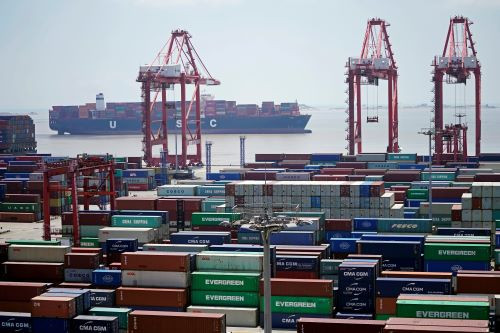China and the United States will definitely reach a phase one preliminary trade deal and will sign this agreement before the start of the upcoming Chinese New Year festival that kicks-off Jan. 25, 2020. The festival will last until Feb. 8.
This optimistic assessment of what others see is a stalled trade deal was made in an opinion piece written by Wei Jianguo, former Vice Minister of the Ministry of Commerce and current Vice President of China International Economic Exchange Center, and published Monday in the Global Times.
"I'm confident and optimistic about this (phase one deal)," wrote Wei. "If the bilateral trade talks make good headway and make progress quickly, the two sides can expect to reach a trade deal before the coming Chinese New Year at the end of January 2020."
Wei bases his optimism a phase one deal will come to fruition on the fact both China and the U.S. remain in communication. He said this confirms the U.S. has the will to reach a trade deal.
"Trump has more of an urgent need for a trade agreement for his re-election while the U.S. economy shows signs of recession and conflict between the two parties," said Wei.
Wei is convinced Trump wants to cut a trade deal since he needs an agreement to calm down domestic disapproval of the trade war. He also believes a phase one trade deal before the end of January will serve to boost China's economy in 2020.
He surmises the phase one agreement will likely not include "too much substance. Instead, it should solve the most pressing issues and march forward step by step." He also contends China is not decoupling from the U.S. economically.
Like Beijing, Wei asserts it's a must Trump first roll back the tariffs he's levied since 2018 before more in-depth negotiations can take place. Trump instigated the China-US trade war with his new and unnecessary tariffs, so the tariffs have to be cut first, argues Wei.
"China does not want a trade war, but it is not afraid of one," he said, again echoing Beijing's current stand on the issue. "If the U.S. continues the trade war, China will fight back. No matter if the tariffs are lifted all at once or at separate stages, the U.S. must roll back all tariffs if it is going to show sincerity.'
Wei noted a phase one deal will be good for Chinese exports to the U.S. He said China's next move will be to solve important issues left untouched by phase one.
Wei pointed out a good agreement has to be a compromise between both parties. The phase one agreement has to build a solid foundation for the next few phases. Wei said China can afford to negotiate many problems except the three bottom lines demanded by Trump -- Chinese sovereignty, national security and China's economic development.






